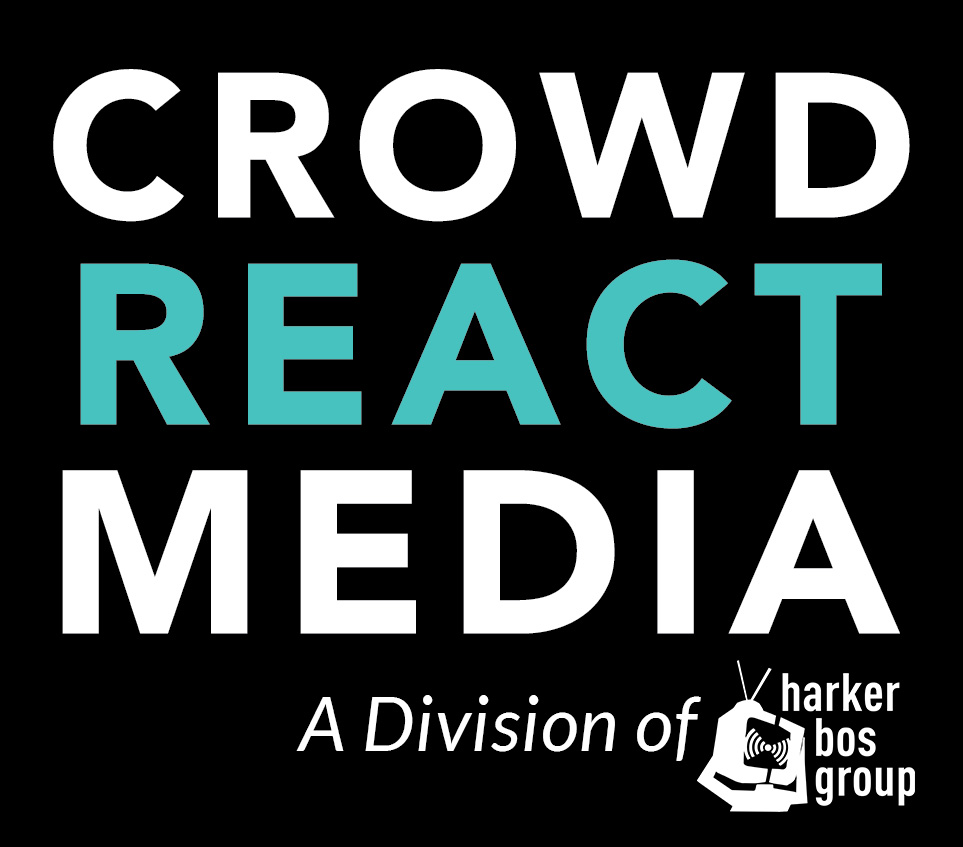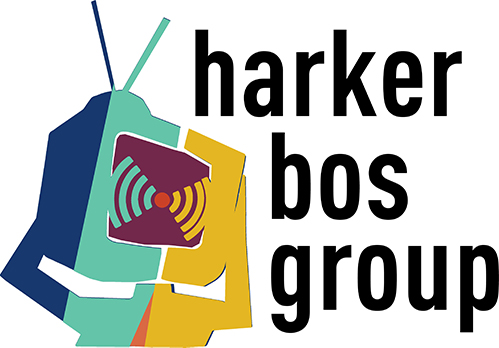Weekly Roundup – Week of May 29th, 2023
Sports Media & Sports Betting News
North Carolina Lawmakers Wager On Sports Betting, Again
"North Carolina may become the 29th state to approve sports betting outside casinos, setting professional sports teams up for a windfall in the coming years.
Why it matters: The effort to legalize sports betting in North Carolina has been a highly contentious battle that transcends party lines, centering on whether the economic benefits it brings the state outweigh the societal costs of gambling.
Driving the news: State lawmakers could send legislation on the issue to the governor's desk in coming weeks. The North Carolina Senate is set to take a final vote on the bill Thursday.
What they're saying: "Betting on sports in our state is occurring, but in order for us to regulate it, in order for us to tax it and provide a public benefit from those taxes, we have to authorize it first," bill sponsor Republican Sen. Tim Moffitt said in a committee hearing last week.
"This is just recognizing that this practice exists, has existed since the beginning of time, is increasing with access to smartphones and technology."
Flashback: Just one lawmaker killed the legislation last year, when he changed his position and voted no after hearing speeches from opponents of the bill, who argue gambling is predatory and addictive.
What's happening: Professional sports teams have ramped up the pressure on lawmakers, saying failure to legalize the practice could shrink their revenues and put them at a competitive disadvantage.
"Compared to a lot of teams, we're already way behind," Don Waddell, general manager for the Carolina Hurricanes, told WRAL last year after the bill failed.
"We can't compete with all the Canadian cities, the New Yorks, Bostons. We can't continue to fall further behind.""
It's About To Get Incredibly Expensive To Watch Sports
"Do you like sports? I know that’s a weird way to begin a sports column, but then again, I’m writing for a general-interest publication, as I have been for the past 15 years, so I can’t really know for sure. One thing I do know: Whether or not you care about baseball, basketball, or football, if you’ve had cable television at any point in the last 30 years, you’ve given sports teams and leagues a lot of money.
How much? Well, in 2013, ESPN hit cable subscribers with a “carriage fee” of $5.54 a month, which was roughly 34 times the 16 cents an average channel charged. As more and more people started cutting the cable cord, that number rose, to a reported $7.64 a month last year. (Some have estimated it’s even more, but we’ll just call it eight bucks.) Think about that. If you had cable television, you paid ESPN 96 bucks last year even if you never watched a single sporting event. And this system has been in place as long as there’s been cable. Which, well, is one of the reasons there might not be cable very much longer.
Last week, The Wall Street Journal reported that Disney, which owns ESPN, is “actively preparing” to make the channel a stand-alone streaming service, available only to subscribers. This seismic move would untether ESPN from the cable model that it has, in many ways, been propping up for years. In an on-demand world, live sports, along with award shows and coverage of breaking news events, have been one of the few salvations of the cable world, the rare television genre that needs to be watched in real time. That’s a major reason the NFL has so thoroughly dominated television ratings, and why those carriage fees were so high compared to other stations.
But it was clear this couldn’t last forever: There are too many cord-cutters, and the streaming world too omnipresent, for ESPN to stay behind the cable wall much longer. The new product, tentatively called “Flagship,” would be a vast expansion of the current ESPN Plus, which only hardcore fans (like me, you should know) subscribe to. ESPN Plus allows access to ESPN.com’s excellent (but forever dwindling) top-shelf online content like Zach Lowe and Bill Barnwell, a seemingly endless number of lower-level college sports, and the network’s catalog of documentaries, most notably those from the 30 for 30 series … but it doesn’t give you ESPN proper, or the premium sporting events on ESPN, ESPN2 and the family of cable networks. (You can’t watch the NBA Finals with ESPN Plus: You need a cable subscription for that.) “Flagship,” according to the WSJ, would give viewers everything in one package."
Apple, Fox, Netflix Emerge As Potential Bidders For Future NBA Rights
"The NBA playoffs are drawing to a close. But behind the scenes, an equally competitive, high-stakes contest is just beginning over who will televise the league into the next decade. The price tag is expected to be over $5 billion a year.
Currently, Walt Disney Co., home of ABC and ESPN, and Warner Bros. Discovery Inc., owner of TNT, are in an exclusive negotiating window to renew their contracts with the NBA. The current deals expire in 2025, and executives at the two companies are waiting for the league to decide what packages of games it will sell. Meanwhile, just about every other major media company — and some technology giants — have expressed interest in making bids once the exclusive window ends next spring.
Currently, Disney and Warner Bros. Discovery pay about $2.7 billion a year combined to broadcast NBA games to a national audience. With all the additional bidders lining up, the league is poised to rake in even more money under the next round of contracts.
“I would expect NBA rights to more than double and potentially quite a bit more,” said Ed Desser, a sports media consultant and former NBA executive who has negotiated the league’s previous media deals.
While regular season NBA ratings were flat, viewership for the playoffs has been the highest in years, and live sports are almost single handedly keeping the cable-TV business alive. With the NFL, MLB and NHL having already renewed their media contracts, the NBA is the last major US sports deal up for grabs for years to come.
This time around, the league is expected to sell its rights to more than two companies. It could carve out games for a streaming service that include international rights or, perhaps, games that previously aired on the beleaguered regional sports networks, according to a person familiar with the league’s thinking."
News & Political Media News
The Stark Numbers Driving Democratic Panic About A Third-Party 2024 Bid
"The independent group No Labels says Americans want more presidential choices, but Democrats argue a larger third-party vote would help Trump. That's what happened in 2016.
...
The strategists behind No Labels believe there is a hunger for an alternative to Biden and Trump, and they’re spending $70 million to launch an independent unity ticket (featuring a Democrat and a Republican) that could have ballot access in all 50 states — and that could win, they say.
Getting a non-major-party candidate on the ballot can be complicated, time-consuming and expensive. But the group already has ballot access in Alaska, Arizona, Colorado and Oregon.
According to a poll No Labels commissioned and released in March, 59% of registered voters nationwide said they would consider voting for a moderate independent candidate if the choices were Biden and Trump, including more than half of Democrats and Republicans, as well as 7 in 10 independents.
What’s more, the No Labels poll found that in a three-person race, an unnamed moderate independent candidate gets support from 20% of all voters, compared with 33% for Trump and 28% for Biden.
No Labels’ leaders stress that if they don’t have a path to victory, they ultimately won’t put forward a 2024 ticket.
They also dismiss complaints that their third-party bid would disproportionately take votes away from the Democratic ticket, saying their own polling showed an equal share of Democrats and Republicans supporting an unnamed moderate independent candidate over Biden and Trump.
...
Democrats disagree, pointing to No Labels’ own survey, which showed Trump’s lead over Biden increasing from 1 point in a two-person contest to 5 points when it included that moderate independent candidate.
And No Labels’ strategists decry Democratic efforts to knock it off the ballot, such as in Arizona, where the state Democratic Party has sued to deny it ballot access.
Clancy said Democrats portray themselves as “protectors of democracy,” but he argued that efforts to keep No Labels off the ballot — and limit the presidential choices to just two parties — runs contrary to democracy.
“Either you’re for democracy or not,” Clancy said."
Nielsen Hits Rival Startup With Patent Suit Over Monitoring Tech
"Nielsen Co. US LLC alleged that audience-measurement rival HyphaMetrics Inc. infringed its patent for centrally monitoring network communications to identify user devices.
HyphaMetrics’s coreMeter hardware, which tracks digital entertainment consumption habits, allegedly makes unauthorized use of Nielsen’s patented technology for device identification, according to the complaint filed Wednesday in the US District Court for the District of Delaware.
The complaint also alleges that VideoAmp Inc., another audience measurement company, closed a deal with HyphaMetrics to incorporate coreMeter data “at least in part due to HyphaMetrics’ activities and the data collected from those activities that constitute infringement.” VideoAmp is not named."
The Looming Existential Crisis For Cable News
"After a week of promotion and controversy, CNN staged a live town hall telecast with Donald Trump this month...It drew thunderous criticism — but strikingly few eyeballs.
The 70-minute broadcast attracted an audience of just 3.3 million viewers, about a third less than the number of people watching an episode of “Celebrity Wheel of Fortune” on ABC the same night.
The tepid response may reflect Trump’s waning drawing power, or the fact that the town hall aired eight months before primary voting begins. But it also tells an ominous tale about cable news’s declining influence and troubled business model.
As recently as 2016, when Trump was narrowly elected president, just over 70 percent of all households with a TV had cable or satellite TV subscriptions. Today the figure is just under 40 percent, according to S&P Global Market Intelligence, a research firm. And it’s dropping fast.
During the first quarter of 2023, another 2.3 million customers (or 7 percent of the total) cut the cord to traditional cable — the fastest cancel-my-subscription pace ever recorded, according to MoffettNathanson, another research firm. The company estimates the number of homes receiving TV via cable is now about the same as it was in 1992, when the industry was still on the rise.
“Cable news is dying,” wrote Alan Wolk, a veteran advertising executive and media consultant, in a recent newsletter about the TV industry. “Not because it’s become irrelevant, but because the medium it lives on, cable TV, is dying.” He predicts that cable could, “for all intents and purposes, disappear” within a decade.
...
Last year, the licensing fees collected by the six biggest cable news networks (Fox, CNN, MSNBC, CNBC, Fox Business and HLN) amounted to just over $4 billion, according to S&P. Advertisers added another $2.6 billion.
But the day could soon come when an exodus of cable subscribers leaves cable operators unable to afford the hefty license fees that those news programmers now command.
The major cable news networks have all joined the push to distribute programming via a welter of digital technologies — streaming apps, YouTube channels, podcasts, social media platforms — to meet the cord-cutters where they are. Yet so far, no news app comes close to matching cable in popularity and profitability."


